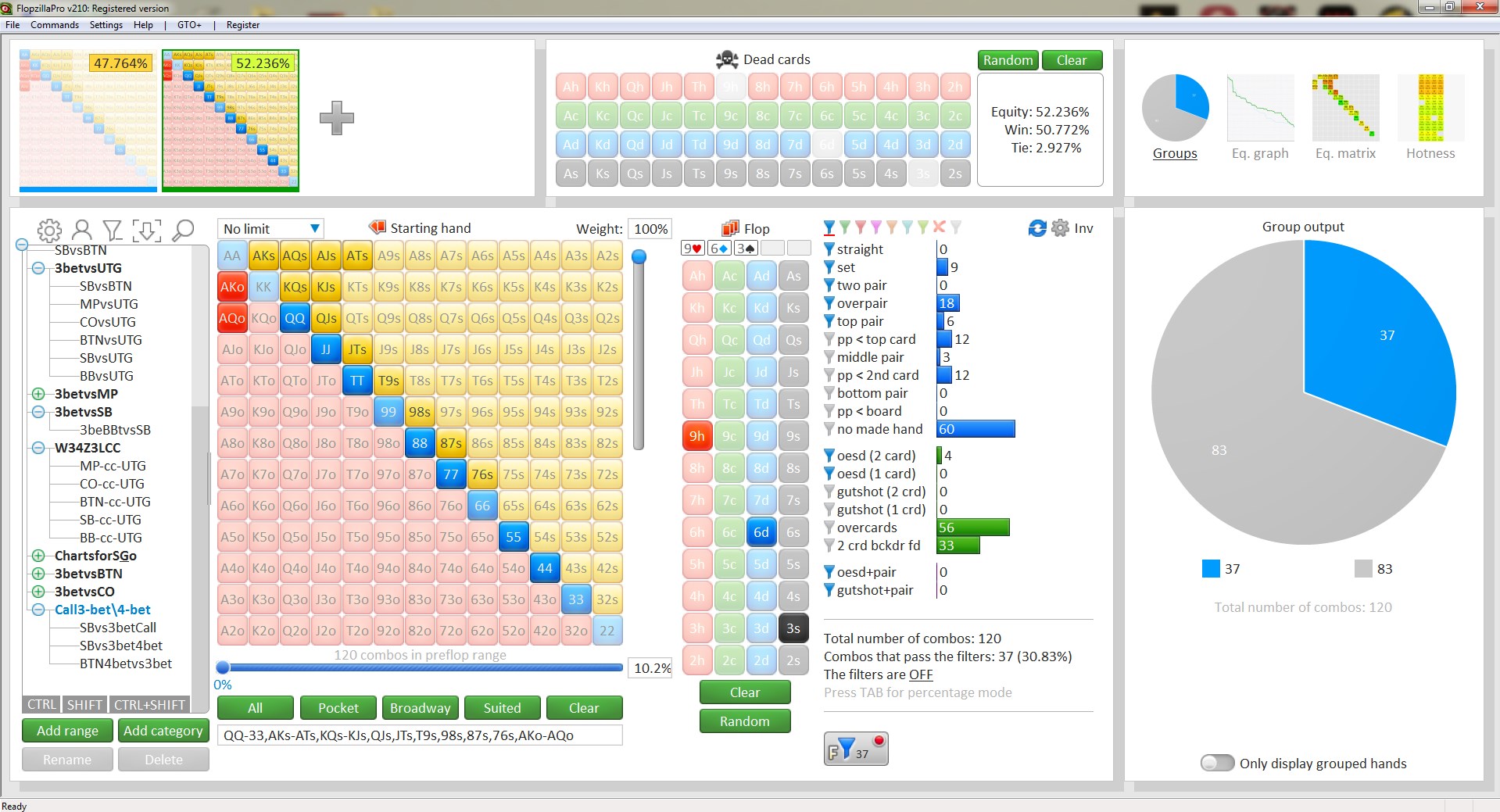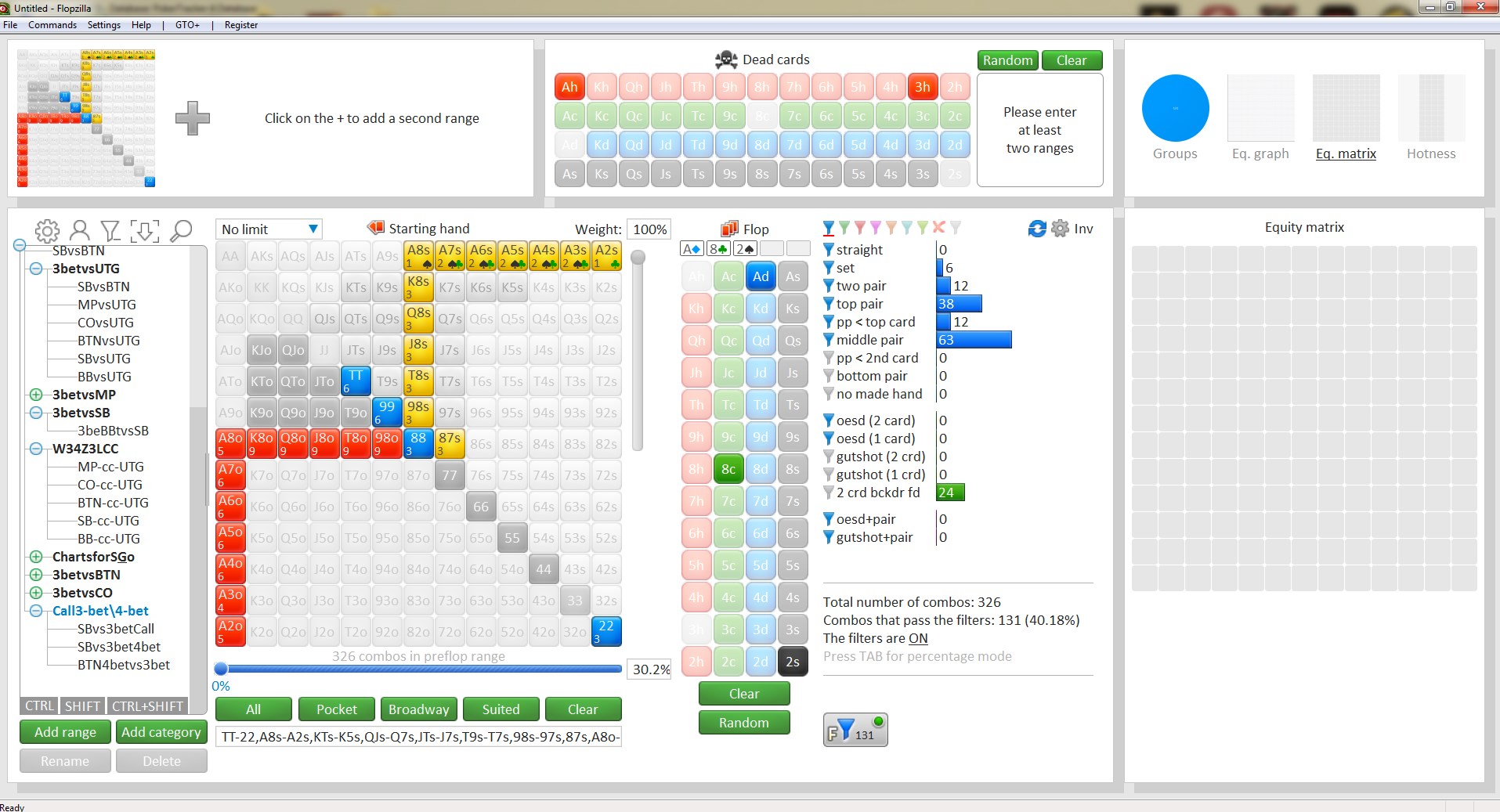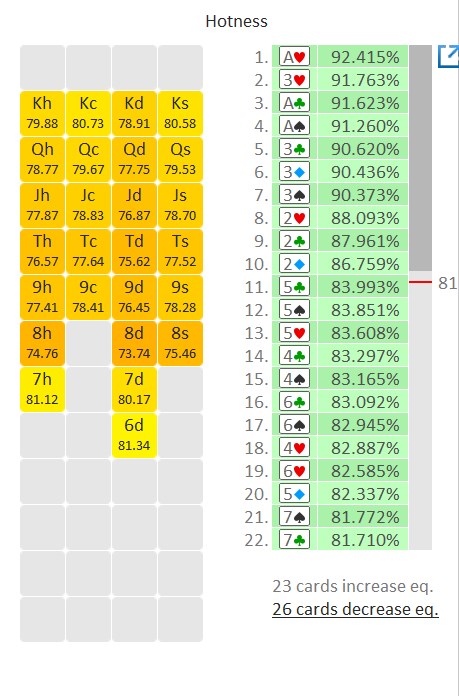7 tips for proper hand analysis in poker

There is no success in modern poker without constant work on your game. Any professional poker player will agree with this. The problem is that the concept of "working on your game" is very multifaceted and blurred. Watching videos, reading articles and books about theory, studying hands on poker websites, discussions with colleagues on Discord, working with a coach, analyzing problem hands in poker programs - this is by no means a complete list of ways to improve your skills.
The variety of options complicates the choice and leads to low efficiency of training. Today we will consider one of the most useful types of work on the game - analyzing hands in the poker calculator. Basic recommendations for effective work look like this:
1. Develop the habit of analyzing hands
Let's start with the basics - if you don't analyze hands at all, then don't expect your winrate or profit to increase. Strive to analyze the hands you play on a regular basis, to find and correct leaks. Hard work and consistency will pay off in the future. A few years ago, scientists hypothesized that it takes 21 days to form a habit. Now the idea has been recognized as erroneous and increased the period to several months. It's actually not that important how long a habit takes to form. Even if you analyze 1 hand every day, after a month many gross mistakes will be a bygone stage. If you spend 10-15 minutes a day and see results, you can't call it wasted time.
2. Analyze the hand against a range rather than against a specific hand
Range thinking is an advanced concept for a poker beginner. But the sooner you start asking yourself, "What combinations might he have based on board structure and previous actions?" the sooner you'll make progress. When you learn to accurately determine your opponent's range in most situations, make the exercise more complex and add the question "What range does my opponent think I have right now?". If you take turns analyzing hands from your side and then from your opponent's side, you will begin to better spot the right situations to bluff.
![]()
Tracker filters will allow specific errors to be parsed rather than abstract hands
At medium and high limits, the ability to convincingly portray a strong combination makes you a lot of money. The opposite is also true: if you show a weak hand, your opponent will be more willing to invest in the pot.
3. Don't make up ranges, but use previous experience
A common mistake made by beginners is making up strange hands and ranges for their opponents. Most of the time, this is how dreamers justify their own weakness. Calling with a weak ready hand, folding with a good combination, not raising with a strong but vulnerable combination - all this is justified by the words "What if he has hand X?". You can't build a strong foundation for profitable poker with this kind of thinking. Instead of indulging your weaknesses, look in your tracker at the hands your opponents are showing in this situation. Base your analysis specifically on the range of hands that you are actually being shown. Any modern poker tracker has a filter system. It will allow you to sort out the appropriate situations and simplify the study of ranges. Don't be lazy to understand the filters of your statistical software. The time spent will pay off many times over in the future.
4. Don't memorize specific hands: memorize the top and bottom of the ranges
You don't need to know all of the combinations of a valuebet or bluff in a particular situation. For example, we have Ah3h on a flop of A28r. We opened from the button position and were called by the big blind.

The Flopzilla interface has been adapted to modern requirements and increased the visibility of the analysis
We don't need to memorize that betting on the big blind will be profitable with the following top pairs: A3, A4, A5, A6...AK. Suffice it to note that with A3 and above it is profitable to bet on the flop, and the opponent will continue with a weaker range. Thus we do not overload the brain with large amounts of unnecessary information.
5. Pay attention to possible turn and river cards
Flopzilla has a "Hotness" scale: it shows how different turn and river cards change the situation for players. Let's take the A3 example as a basis:

Hotness will teach you how to sense scary cards for you and your opponents
3, A, 2, Q on the turn will favor the player with Ah3h. The rest of the cards potentially strengthen the opponent. Over time, you will realize the danger of the cards that come out and use them to put pressure on your opponent, provoking a lot of folds.
6. Don't hesitate to ask for help
Modern poker is quite a complex phenomenon. In the early days of online poker, starting hand charts and ABC poker were enough to successfully overcome low limits. In 2023, even NL10 regulars have some idea of the complex concept of GTO. Times have changed, so it's okay to ask for help. You won't always have enough skill (understanding) to objectively evaluate a hand played. Asking for advice on a blog or posting a hand for outside view is not shameful. It's more shameful to make the same mistakes without trying to eradicate them when you have every opportunity to do so. Over time, you will need more skilled and targeted help. Taking paid lessons from a good player is better than banging your head when you hit the ceiling.
7. Record the results of hand analysis
Sometimes it happens that you've analyzed everything and closed the poker software. Except that the useful information has not yet been internalized into some concrete conclusions and concepts. As a result, you sit down at the tables again, make most of the mistakes you've sorted out, and then cringe and tear your hair out. Don't be lazy to spend a few extra minutes: write down your thoughts on the hands and summarize your results. We guarantee - the effectiveness of learning will increase significantly.
Conclusion
We have considered a far from complete list of all the recommendations that will be useful for poker calculator hand analysis (we have the best of them - Flopzilla and Power-Equilab). Nevertheless, if you follow all the recommendations responsibly, you will feel a significant increase in your poker understanding and skill after 3-4 weeks.





 Log in
Log in  Register
Register 